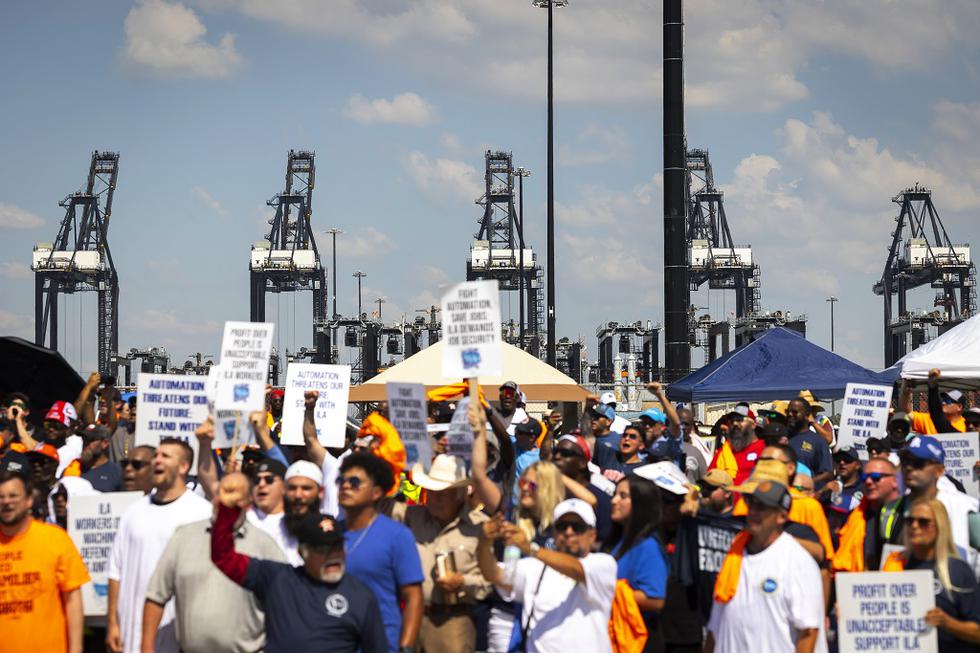Thousands of longshore workers at major ports along the US East and Gulf Coasts went on strike Tuesday, marking the first such action by the International Longshoremen’s Association (ILA) in 47 years.
The strike, involving around 45,000 workers, affects 36 key ports from Maine to Texas, which handle a wide range of goods, including food and electronics.
The walkout comes just over a month before the US presidential election, potentially posing significant risks to the world’s largest economy.
After weeks of stalled negotiations, the United States Maritime Alliance (USMX), representing shipping companies and terminal operators, had expressed hope for a last-minute deal on Monday. However, no agreement was reached before the contract deadline passed at midnight.
In Elizabeth, New Jersey, striking workers gathered with American flags and signs criticising port automation as a threat to jobs.
One sign read, “Profits over people is unacceptable.”
A strike had been anticipated for months, with the likelihood increasing as the September 30 deadline approached.
Analysts warn that a prolonged strike could lead to shortages and higher costs, complicating economic recovery just as inflation has been easing.
The White House confirmed that President Joe Biden and Vice President Kamala Harris are monitoring the strike closely. Biden, who was briefed on the situation late Tuesday, called for a fair offer from the shipping companies, particularly from the foreign-owned ocean carriers represented by USMX.
“These foreign companies have seen record profits,” the White House said, “and the president believes it is time they present an offer that reflects ILA workers’ invaluable contribution to their success.”
Though Biden has the authority under the Taft-Hartley Act to enforce an 80-day “cooling-off” period and compel workers to return to their jobs, he has ruled out such action, emphasising the importance of respecting collective bargaining rights.
The National Retail Federation urged Biden to take immediate action to end the strike, warning of severe consequences for American workers, families, and local communities.
Meanwhile, former President Donald Trump, campaigning in Milwaukee, blamed Biden for the labour dispute, saying, “He should have worked out a deal.”
This ILA walkout follows other recent high-profile strikes, including those at US automakers and Boeing. The union is demanding protections against automation-related job losses and significant wage increases, citing the essential role dockworkers played during the COVID-19 pandemic.
Media reports indicate that the ILA is pushing for a 77 percent wage increase over six years, while USMX has countered with an offer of nearly a 50 percent raise.
“We have demonstrated our commitment to ending this avoidable strike,” USMX said on Tuesday. “We await the union’s willingness to return to the table, as negotiations are the only way to resolve this.”
The ILA responded by accusing USMX of distorting the facts and downplaying the sacrifices made by dockworkers during the pandemic.
“Our members feel underappreciated,” the union said. “They kept the ports open and the economy moving, yet now their contributions are being overlooked.”
Analysts estimate that the strike could cost the US economy between $4.5 billion and $7.5 billion per week, depending on its duration.
